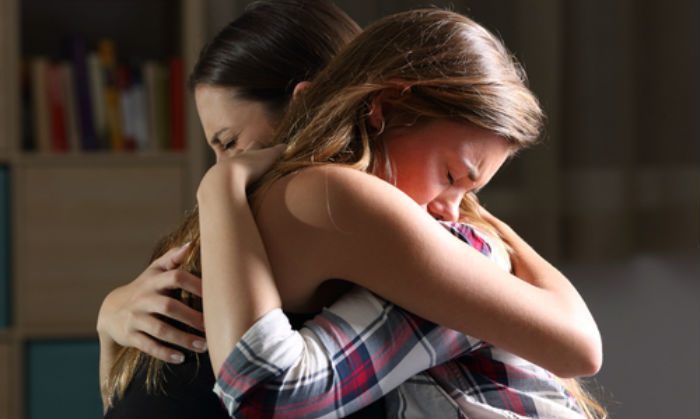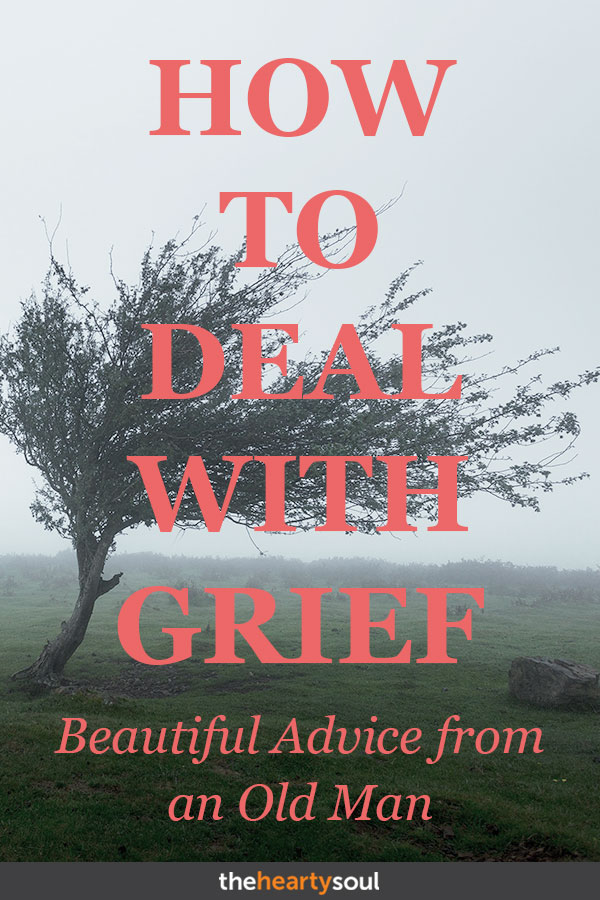Anyone who has ever lost a dear friend knows the deep anguish that follows – it can be catastrophic. In times like that, people tend to speak too much or too little. However, it’s not necessarily about how much is said but what is said. Some of these may sound familiar…
I am so sorry for your loss.
I’ll keep you in my thoughts and prayers.
There’s a reason for everything.
At least they lived a long life.
I wish I had the right words, just know I care.
Don’t worry, be strong.
How to Comfort Someone Who Just Lost a Loved One

Of course, some of those common phrases are more appropriate and sensitive than others. But, it begs the question: What do you say to someone who is grieving or mourning the loss of a loved one?
Not many people live in a constant state of thinking they will lose a partner, best friend, or child… When it does happen, the loss can come as quite a shock and leaves the individual unsure of how to process what has happened in order to move forward and heal.
Older Man’s Advice for Dealing With Grief is So Beautiful
“My friend died. I don’t know what to do.”
One woman on Reddit, an online forum community, was experiencing exactly that… Her best friend had died and she was devastated, unsure of where to turn. What the woman did next may shock some people. Why would you ask the internet for help? Don’t you know how many conflicting responses you’ll get? It’ll only leave you feeling sadder and more confused.
If any of those thoughts went through your mind, you’re not alone. Many people shared real-life examples from their own lives, which can either help or do more harm. However, one response from an older man on Reddit cut through all the clutter and truly spoke to the woman’s heart. (We’ve posted it below in hopes that it’s comforting and hopefully gives you or a loved one some closure.)
“Alright, here goes. I’m old. What that means is that I’ve survived (so far) and a lot of people I’ve known and loved did not. I’ve lost friends, best friends, acquaintances, co-workers, grandparents, mom, relatives, teachers, mentors, students, neighbors, and a host of other folks. I have no children, and I can’t imagine the pain it must be to lose a child. But here’s my two cents.
I wish I could say you get used to people dying. I never did. I don’t want to. It tears a hole through me whenever somebody I love dies, no matter the circumstances. But I don’t want it to ‘not matter.’ I don’t want it to be something that just passes. My scars are a testament to the love and the relationship that I had for and with that person. And if the scar is deep, so was the love. So be it.
Scars are a testament to life. Scars are a testament that I can love deeply and live deeply and be cut, or even gouged, and that I can heal and continue to live and continue to love. And the scar tissue is stronger than the original flesh ever was. Scars are a testament to life. Scars are only ugly to people who can’t see.
As for grief, you’ll find it comes in waves. When the ship is first wrecked, you’re drowning, with wreckage all around you. Everything floating around you reminds you of the beauty and the magnificence of the ship that was and is no more. And all you can do is float. You find some piece of the wreckage and you hang on for a while. Maybe it’s some physical thing. Maybe it’s a happy memory or a photograph. Maybe it’s a person who is also floating. For a while, all you can do is float. Stay alive.
In the beginning, the waves are 100 feet tall and crash over you without mercy. They come 10 seconds apart and don’t even give you time to catch your breath. All you can do is hang on and float. After a while, maybe weeks, maybe months, you’ll find the waves are still 100 feet tall, but they come further apart. When they come, they still crash all over you and wipe you out.
But in between, you can breathe, you can function. You never know what’s going to trigger the grief. It might be a song, a picture, a street intersection, the smell of a cup of coffee. It can be just about anything…and the wave comes crashing. But in between waves, there is life.
Somewhere down the line, and it’s different for everybody, you find that the waves are only 80 feet tall. Or 50 feet tall. And while they still come, they come further apart. You can see them coming. An anniversary, a birthday, or Christmas, or landing at O’Hare. You can see it coming, for the most part, and prepare yourself.
And when it washes over you, you know that somehow you will, again, come out the other side. Soaking wet, sputtering, still hanging on to some tiny piece of the wreckage, but you’ll come out.
Take it from an old guy. The waves never stop coming, and somehow you don’t really want them to. But you learn that you’ll survive them. And other waves will come. And you’ll survive them too. If you’re lucky, you’ll have lots of scars from lots of loves. And lots of shipwrecks.”

How to Help a Grieving Person
What a powerful message for anyone experiencing loss! It was a bit long but we hope that there was at least one piece of wisdom you could glean and hopefully share with others. Also, here’s a small but helpful list if someone you know is in the midst of a season of loss.
- Understand the stages of grief
- Know what to say (e.g., I’m sorry for your loss, Do you feel like talking?)
- Offer them practical help (e.g., run errands, do the cooking, etc.)
- Provide ongoing support (e.g., don’t just help once; healing takes time and may require more)
- Keep an eye out for symptoms of depression


